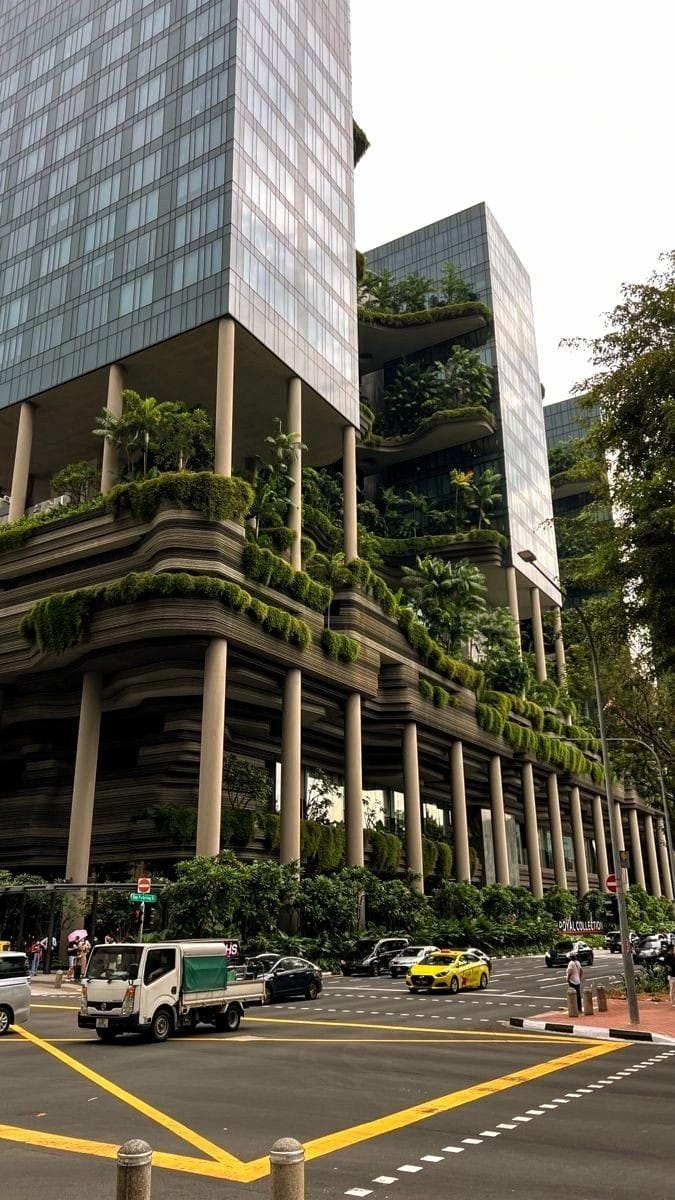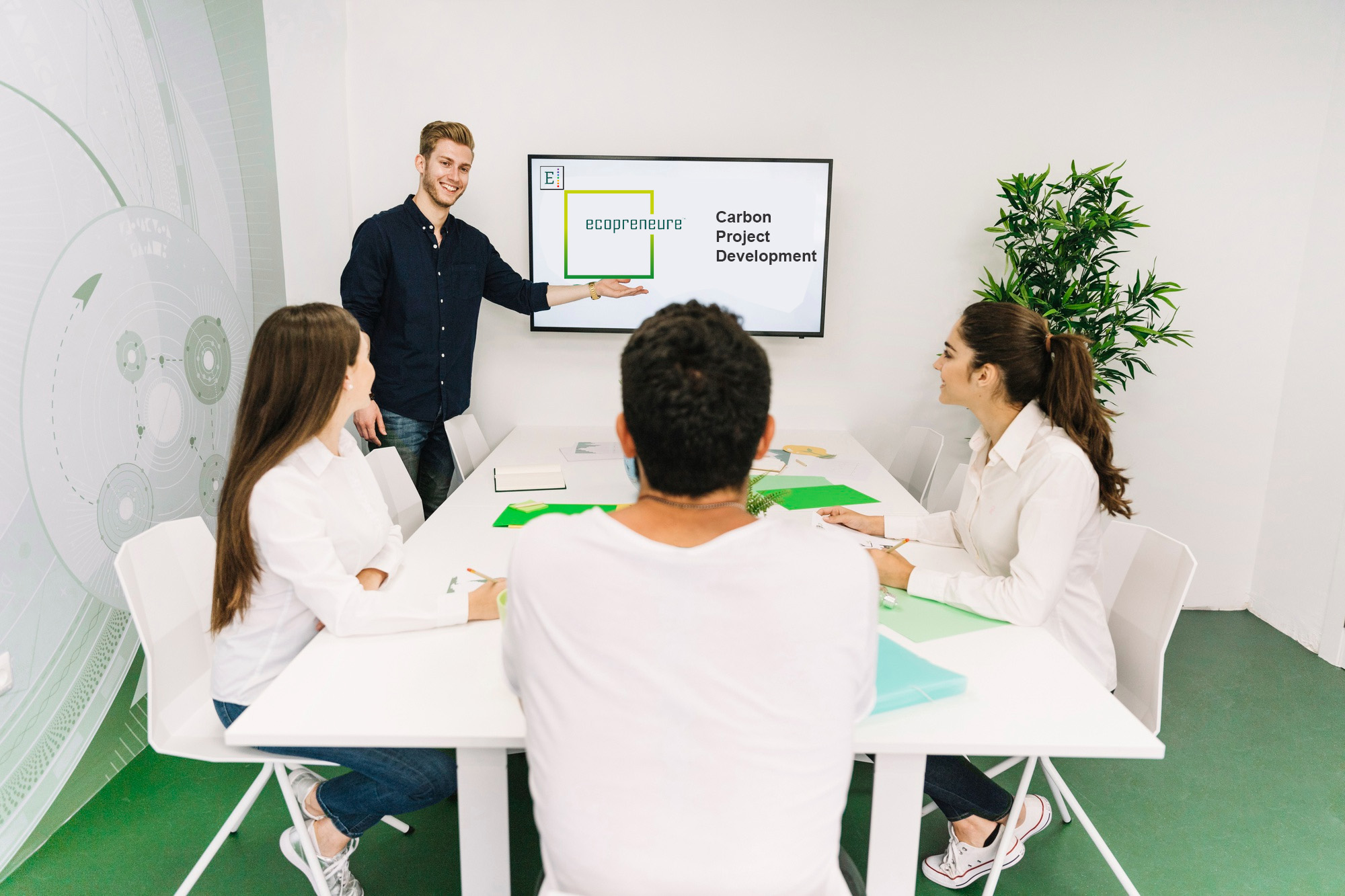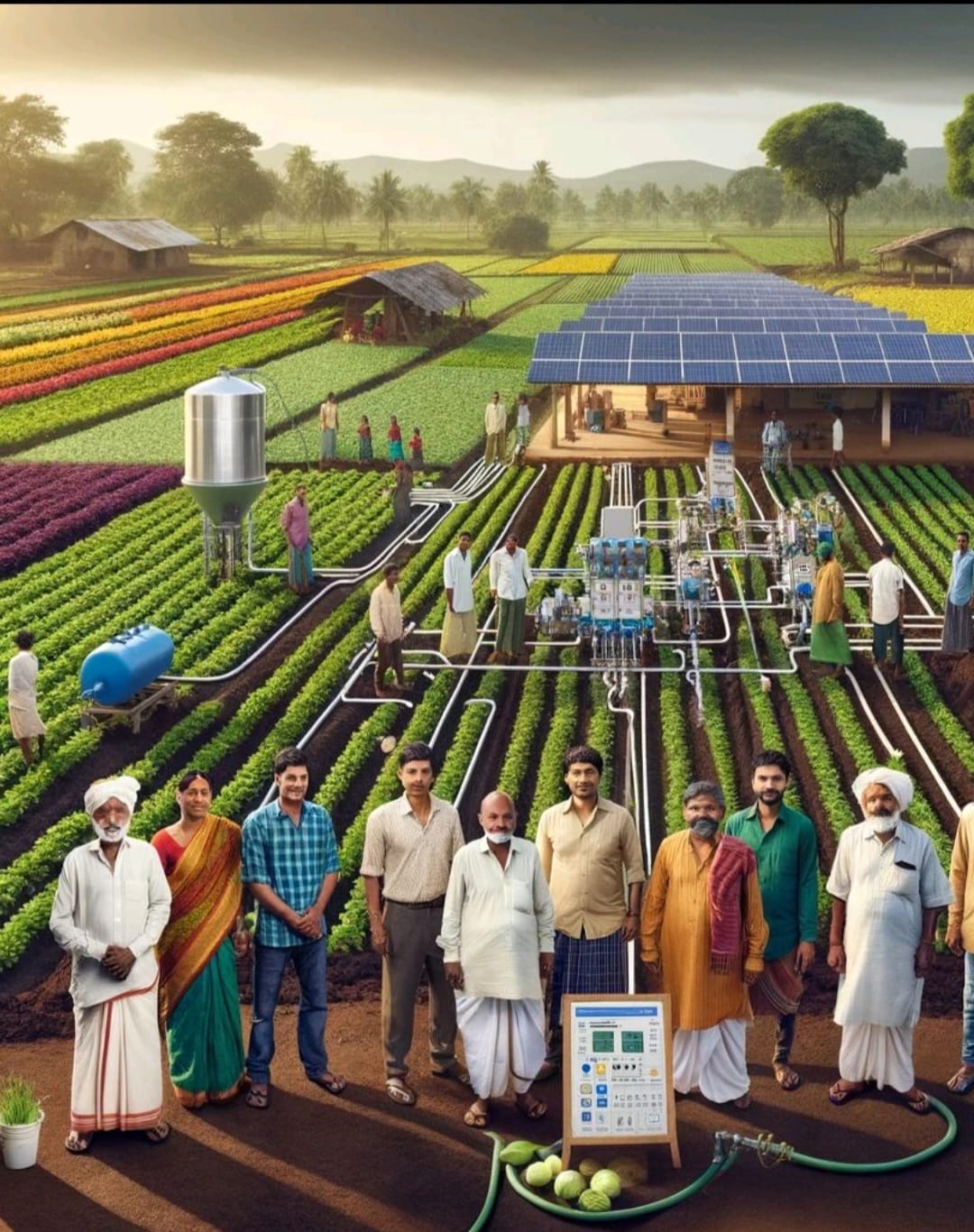
Carbon Credit Consultation
Ecopreneure boasts a team of experienced professionals with in-depth knowledge of carbon markets, project development, validation and verification processes, and relevant national and international standards. Our consultation services can help you:
- Assess your current carbon footprint: We will help you accurately measure your greenhouse gas emissions.
- Identify opportunities for carbon reduction and sequestration projects: We will analyze your operations to pinpoint areas where emission reductions can be achieved or carbon can be captured.
- Develop and implement carbon credit projects: We will guide you through the entire project lifecycle, from initial concept to registration and monitoring.
- Navigate the complexities of carbon credit standards and methodologies: We possess expertise in various recognized standards (e.g., CDM, VCS, Gold Standard) relevant to projects.
- Facilitate the validation and verification process: We will work with accredited third-party auditors to ensure the integrity and marketability of your carbon credits.
- Connect you with potential buyers in the carbon market: We can leverage our network to help you secure favorable terms for your carbon credits.
- Provide ongoing support and monitoring: We can assist with the long-term management and reporting of your carbon credit projects.
Carbon Project Development
Ecopreneure brings extensive experience and a proven track record in all stages of carbon project development, including:
- Project Identification and Feasibility Studies: Identifying suitable project types (e.g., forestry, renewable energy, energy efficiency, agriculture), conducting thorough feasibility assessments, and evaluating their carbon sequestration or emission reduction potential.
- Methodology Selection and Validation: Identifying and applying appropriate carbon accounting methodologies recognized by leading international standards (e.g., CDM, VCS, Gold Standard), and managing the validation process with accredited third-party entities.
- Project Design Document (PDD) Development: Preparing comprehensive and robust PDDs that meet the requirements of relevant carbon standards and ensure project additionality, baseline accuracy, and leakage prevention.
- Stakeholder Engagement and Community Consultation: Facilitating meaningful engagement with local communities, government agencies, and other relevant stakeholders to ensure project buy-in and address potential social and environmental impacts.
- Monitoring, Reporting, and Verification (MRV) System Design: Developing robust MRV systems to accurately track project performance and quantify carbon benefits, ensuring transparency and credibility.
- Carbon Credit Registration and Issuance: Managing the registration of the project with the chosen carbon standard and facilitating the issuance of carbon credits.
- Carbon Credit Marketing and Sales (Optional): Providing support in identifying potential buyers for the generated carbon credits, leveraging our network and market expertise.
- Renewable Energy Transition:
- Developing strategies for accelerated deployment of solar, wind, and other renewable energy sources.
- Promoting grid modernization and energy storage solutions.
- Facilitating investment and technology transfer in the renewable energy sector.
- Sustainable Waste Management and Circular Economy:
- Developing integrated waste management systems, including waste segregation, collection, processing, and recycling infrastructure.
- Promoting circular economy principles and business models to minimize waste generation and maximize resource utilization.
- Addressing the challenges of plastic waste management and e-waste recycling.
- Water Resource Management and Conservation:
- Implementing water-efficient irrigation techniques and promoting sustainable agricultural practices.
- Developing strategies for water conservation, rainwater harvesting, and groundwater recharge.
- Addressing water pollution and ensuring access to clean and safe water resources.
- Sustainable Agriculture and Food Systems:
- Promoting climate-resilient agriculture and sustainable farming practices.
- Enhancing food security and reducing food waste.
- Supporting the development of sustainable value chains for agricultural products.
- Climate Change Adaptation and Mitigation:
- Developing and implementing strategies to adapt to the impacts of climate change, such as extreme weather events and sea-level rise.
- Promoting low-carbon development pathways and reducing greenhouse gas emissions across various sectors.
- Enhancing climate resilience in vulnerable communities and ecosystems.
- Sustainable Urban Development:
- Promoting green building practices and energy efficiency in urban infrastructure.
- Developing sustainable transportation systems and promoting public transport.
- Enhancing urban green spaces and biodiversity.
- Biodiversity Assessment and Conservation:
- Species identification, inventory, and monitoring.
- Habitat mapping and analysis.
- Conservation planning and management strategies.
- Assessment of human impacts on biodiversity.
- Ecological restoration and rehabilitation.
- Climate Change Research:
- Impact assessment and vulnerability studies.
- Greenhouse gas emission inventories and analysis.
- Climate change adaptation and mitigation strategies.
- Analysis of climate trends and projections.
- Water Resources Management:
- Hydrological studies and water quality monitoring.
- Assessment of water availability and scarcity.
- Impacts of pollution and land use on water resources.
- Sustainable water management planning.
- Forestry and Land Use Change:
- Forest inventory and biomass assessment.
- Analysis of deforestation and land degradation.
- Sustainable forest management practices.
- Impacts of land use change on biodiversity and ecosystem services.
- Pollution Monitoring and Assessment:
- Air, water, and soil pollution monitoring and analysis.
- Identification of pollution sources and pathways.
- Assessment of environmental and human health impacts of pollution.
- Development of pollution control and remediation strategies.
- Socio-Environmental Studies:
- Assessment of the social and economic dimensions of environmental issues.
- Stakeholder engagement and participatory research.
- Environmental policy analysis and evaluation.
- Community-based conservation initiatives.
CSR Projects under ESG Framework
In India, Corporate Social Responsibility, mandated under Section 135 of the Companies Act, 2013, requires eligible companies to spend at least 2% of their average net profit of the preceding three financial years on specified CSR activities outlined in Schedule VII. The ESG framework provides a broader lens through which companies can assess their impact and risks across environmental, social, and governance factors. Integrating ESG principles into CSR projects ensures that these initiatives are not only compliant but also strategically aligned with global sustainability goals and contribute to long-term value creation. Ecopreneure brings a wealth of experience in implementing grassroots development projects, environmental conservation, skill development, etc. We have a strong network of local partners and a deep understanding of the social and environmental landscape in India.





